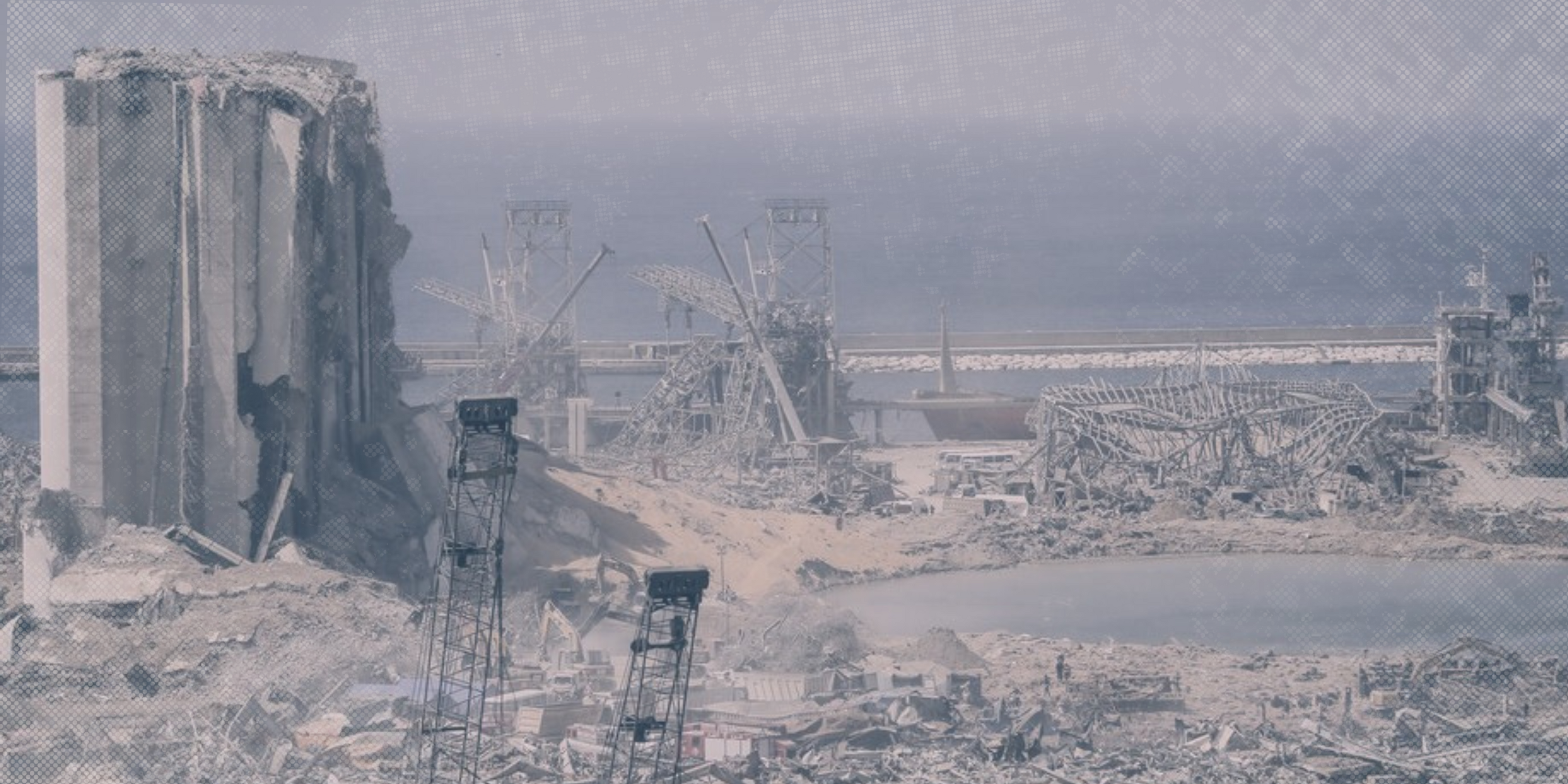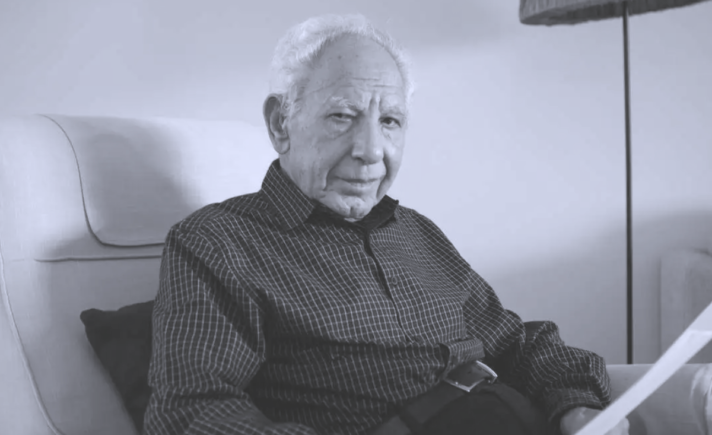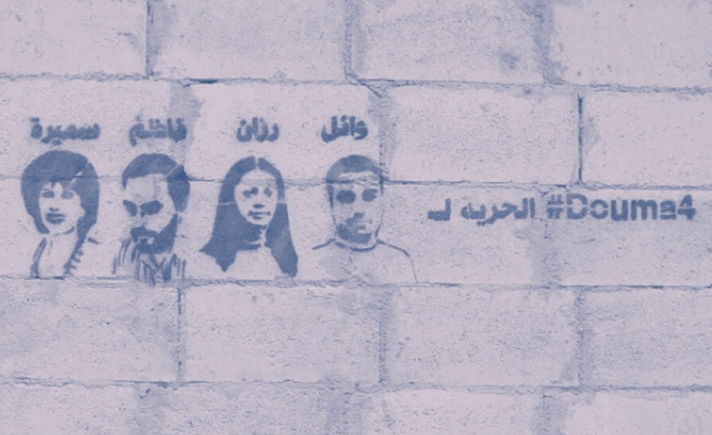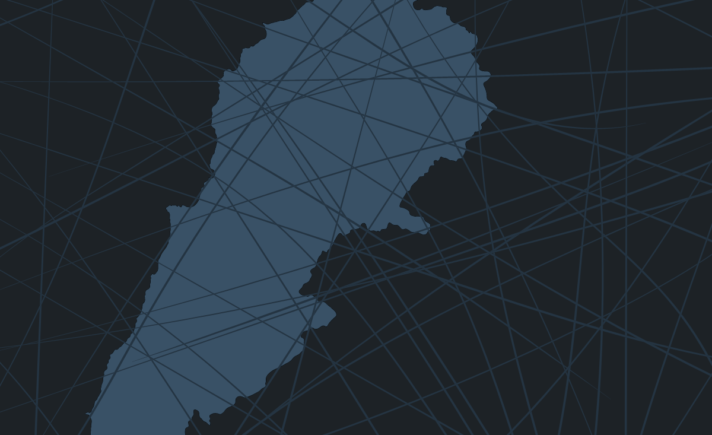Since 2020, the ability to speak has been increasingly constrained. In the moment of calamity, language resists articulation with the tools of yesterday. This reticence is to be expected. But what can be said during the horrifying moment of the explosion?
The moment of calamity is analogous to an angry outburst replete with expletives, a sign of the deficiency of linguistic expression despite the plethora of writings produced about the crisis in the months separating October 17, 2019 and August 4, 2020. But the expression of anger quickly gave way to a quotidian preoccupation with either methods of survival, or methods of fleeing the country; or was faced with utter denial.
I am trying to think of the meaning of what actually happened that day, and of the point we have arrived at this week – amidst a frenzied discourse targeting Syrian refugees and anyone whose appearance is suspiciously Syrian! Of course, this is not the first time that such a thing happens in Lebanon. The exploits in which Lebanese target non-Lebanese groups, or even some marginal Lebanese groups, are well-known. This is foundational to the idea of a «different» Lebanon, whereby «difference» comes to indicate a superior identity flaunted in the face of the other.
Let’s put aside, for a moment, the apocalyptic scene of August 4. In my opinion, the brunt of the explosion was as heavy on our souls not because it gave credence to the public protestations that led to October 17, but because it severed us from the possibility of hope and subjected us to the inevitability of despair. The protestations of October 17 made it clear that the validity of a «state of peace» has ended, and that any compromise between the Lebanese and their state, which guaranteed their livelihood, is no longer in effect, and that those who are in positions of authority within and above the state are responsible for what transpired. The collapse happened gradually, across many stages, whereby any possibility of the popular participation of unions and civil society was curtailed in favor of a myopic, crony, sectarian, and political form of hegemony (myopic even by the standards of the early years of civil peace). Thus, a savage barbarism settled within «the administration,» a barbarism that danced to the tune of distinguishing Lebanon in its «unique» role.
Lebanon has become out of joint with this new time, and the situation has been completely abandoned to Hizballah, who has recycled the event and offered its base the narrative of a «siege» that fits with the party of God’s discourse of historical victimhood and inevitable victory (currently and in the future). In the face of such hegemony, the handling of October 17 was lacking. We witnessed a return to the miserable forms of a post-March 2005 era, coupled with the technical performativity of non-governmental organizations, and exacerbated by classist elitism and the complete lack of party organization and theoretical engagements.
The explosion confronted us with the truth that we are corpses-in-waiting. Indeed, the explosion transformed us to corpses governed by the shock of what happened that day. The explosion offered us a truth that the collapse can take a strict material meaning: mass death in one instance in which no one is spared and nothing remains. When once the answer to the question, «what could they do to us,» was «civil war,» now the answer has become immeasurably crueller and unimaginable.
The August 4 explosion meant that anything can happen, that the hell we anticipated could be even worse than we thought. The explosion ended the spontaneous show of force that offered opportunities of change, however small. And so, the parliamentary elections were nothing but a false exercise that proposed totally unachievable promises of change (even in its reformist, rather than revolutionary meaning). The elections were merely an opportunity for the hegemonic powers to measure the force of their partisans after October 17, and to rebuild themselves accordingly. They were also an opportunity for official parties to quell popular anger and channel it through a framing that belongs to a time before the collapse: let them be represented in the skeleton of what remains of constitutional institutions. Many jumped at the opportunity to advocate for little victories in the time of the great collapse, as if we were managing a garbage crisis or were on the cusp of elections that belonged to a lost time. The parliamentary elections petrified the October 17 moment and left it stuck in time; the elections also prevented the induration of the explosion as a pivotal event and instead transformed it to an ordinary event, an uneventful event after which one can continue to live as if in a pre-October 17 time. By promoting and participating in the elections, the political groupings of October 17 did exactly the opposite of what was required of them by choosing to gain desperate privileges in a country experiencing free-fall and where the basic necessities of life are nonexistent.
Today, we witness an expansion of this horrifying scene in which television stations, journalists, activists, politicians, artists, and the general public participate (whether on the street or on social media). This scene is beyond belief when compared with the most extreme moments after 2005 and the explosions that followed, a time when Syrian laborers would be lynched from vans and beaten up on the streets. Even though the current campaign is a security crackdown par excellence, it is still being fueled by an existing general climate that is not that much different from the racist climate in other countries where we find a combination of nationalist discourses, economic collapse, unemployment, and a dearth of real political opportunities.
The campaign does not seem to be interested in reason or logic, and this is the case of all targeted security crackdowns. Any attempt to bring reason to the discussion, or to logically approach it, or to intellectually respond to it will inevitably lead to answers like, «Are you living under a rock?» or «What else do you want?» or even «Yes, I am a racist.» This is an orchestrated campaign that rests on a strong popular pulse that was tested when the Amal-backed governor of Baalbeck and Hermel racially attacked the Syrian refugees in Lebanon. This campaign relies on regional realignments, and its actors are showcasing their credentials within Lebanon by peddling various debates under the umbrella of a nationalist discourse (even in its caricaturist form) that benefits all political parties.
The campaign replaces the disaster of the explosion (which no one has taken responsibility for), along with the collapse that preceded and continued after it (which no one has tackled in a radical political way, aside from a few cowardly, opportunistic, and momentary objections) with a new crisis. This crisis has a well-known face; everyone knows who is responsible, and everyone can engage with it and win from it: the refugee question. The refugees are not only presented as a contributor to the collapse, or an accelerant, but as the main cause altogether. Refugees, we hear, strain infrastructure and make any solution impossible. In other words, this is the true replacement that hides behind the discourse of demographic replacement: the replacement of one grand perpetual crisis with another that is specific and well-defined.
As usual, the holdovers of March 14 bullheadedly say what Hizballah cannot (about demographic replacement). This is a constant feature of all who stand in the face of the Party of God whereby they always play the party’s role. In the meantime, Hezbollah takes advantage of these positions by appearing to be prissy about racist attitudes and bemoans its constant involvement in these rhetorical exercises. All the while, Hezbollah remains occupied with its bigger battle, which it frames as greater and grander than any nationalist discourse.
This campaign opens the door for a performative duel revolving around the dichotomy of racist/non-racist. The “nationalist discourse” wins this duel directly by answering, “I’m racist and proud of it» thus emptying the ethical accusation of any meaning. More importantly, such an accusation does absolutely nothing to protect the refugees. While we watch this performative duel, the Syrians are cursed, beaten up, and deported to a destiny they were escaping.
The campaign offers only one answer to the question, «what does it mean to be a Lebanese today?» a question that is different from the more general question, «what is Lebanon?» The answer to the latter is stuck in history and no one wants to approach it, which explains a lot about this oppressive period of danger that permeates the life of everyone who the campaign considers «non-Lebanese» in the decomposing corpse called «Lebanon,» wherein entire lives wither.





